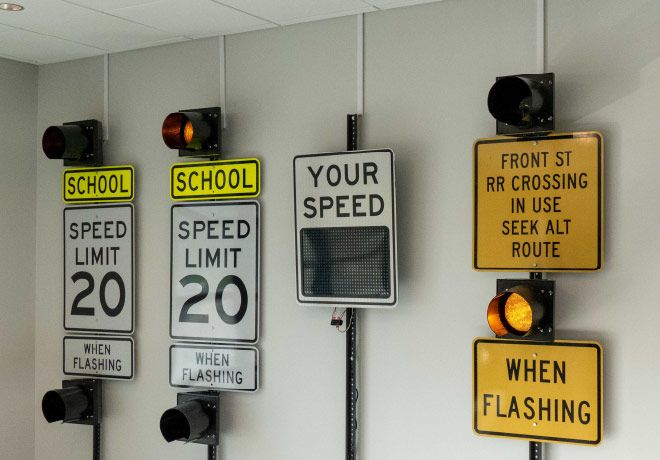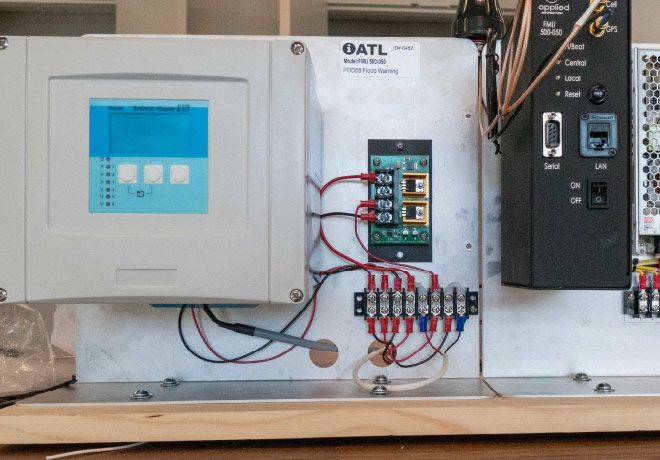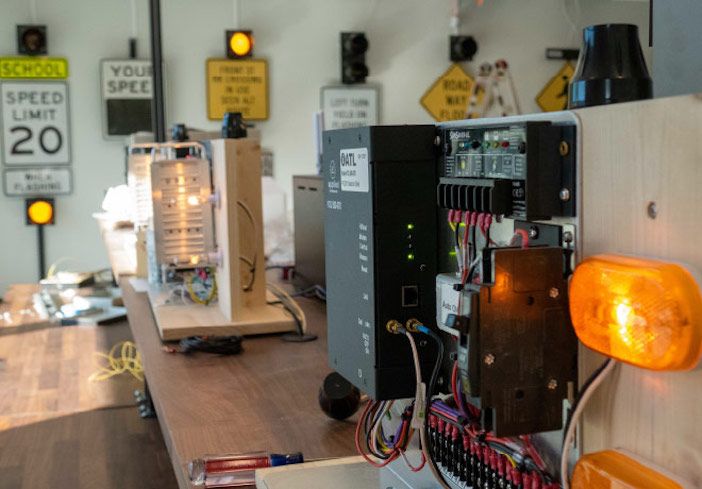As the Infrastructure Automotive Technology Laboratory (iATL), based in Alpharetta, Georgia, marks its first year anniversary, it has also announced the creation of a Partner Alliance.
The iATL is the first technology lab to bring together automakers, cellular network operators, traffic technology companies, semiconductor manufacturers and Departments of Transportation to develop connected vehicle applications.
Now the iATL Partner Alliance has been announced. The Alliance is made up of public and private organizations with either a direct connection to the lab or actively support the development and deployment of connected vehicle technology.
The full list of partners reads as follows: Audi of America; AT&T; Applied Information; Carbon Film; City of Alpharetta; Connex2x, Inc.; Gades; Goldwings; Greater North Fulton Chamber of Commerce; Holland & Knight; JAM Services Inc.; Industrial Remote Monitoring, Inc.; ITS America’ Mobotrex, Morris, Manning & Martin, LLP; National Electrical Manufacturers Association (NEMA); NexTech Systems, Inc.; North Fulton Community Improvement District; Paradigm; Path Master; Pope & Land; Ocean State Signal Company Inc.; Qualcomm Technologies, Inc.; Ridar Systems; Traffic Control Corporation; Temple, Inc.

“Audi is excited to partner with public and private iATL stakeholders, together creating the future of connected vehicle safety innovations,” says Brad Stertz, director of government affairs, Audi of America. “With iATL partner organizations, we are able to introduce cellular vehicle-to-everything (C-V2X) technologies that alert drivers when they’re approaching school zones or buses, protecting children. In the future, when C-V2X becomes available to the public it will provide an immediate benefit to vulnerable road users.”
“ITS America is proud to join the iATL Partner Alliance,” says ITS America president & CEO Shailen Bhatt. “The development and deployment of connected vehicle technology is the best tool in our toolbox to save lives on US roads.”
The iATL opened on January 10, 2020 before the Covid-19 pandemic took hold, but quickly adapted to continue the development of connected vehicle safety applications. During the year, the iATL continued its mission by turning part of the lab into a television studio so partners could continue development activities virtually.

During 2020 several new connected vehicle applications and related products were announced, developed and deployed, including: Virtual transit bus priority (Georgia and Massachusetts); Bicycle detection and peloton priority for traffic signals (California); Virtual acceptance testing and certification of Intelligent Transportation Systems (California); Emergency vehicle preemption performance monitoring system (Georgia); Remote advanced smart traffic corridor compatibility (Hawaii); FCC C-V2X experimental licensing program (Georgia, Texas); Connected vehicle school bus safety application (Audi); Connected vehicle school zone safety application (Audi).
 “The impressive list of accomplishments at the iATL in 2020 in spite of the pandemic shows what a talented group of people can do when given the opportunity in the right environment, be it in-person or virtual,” says Bryan Mulligan, executive director of the iATL. “The year 2021 promises to bring even more exciting innovations and partnerships.”
“The impressive list of accomplishments at the iATL in 2020 in spite of the pandemic shows what a talented group of people can do when given the opportunity in the right environment, be it in-person or virtual,” says Bryan Mulligan, executive director of the iATL. “The year 2021 promises to bring even more exciting innovations and partnerships.”
The 4,400 square foot facility includes dozens of different types of electronic devices that control everything from traffic signals to school zone safety beacons to electronic crosswalks. Automakers and others can develop interactive safety apps that engage with the devices in the lab and on roadways within a 5-mile radius outfitted with connected infrastructure.
The Infrastructure Automotive Technology Laboratory, iATL, is the world’s first facility for developing connected vehicle applications for both vehicles and traffic control devices such as traffic signals. The primary function of the iATL is to serve as an engineering technical facility for testing connected vehicle application functionality and performance between the transportation infrastructure and motor vehicles, the infrastructure and vulnerable road users, motor vehicles and vulnerable road users and other configurations. The iATL is surrounded by more than 120 connected devices operating in the City of Alpharetta, GA which provides a diverse range of topography, flora, seasonal weather and construction for real-world testing in normal traffic. The iATL is sponsored by Applied Information, Inc. For more information, visit www.theiatl.com





